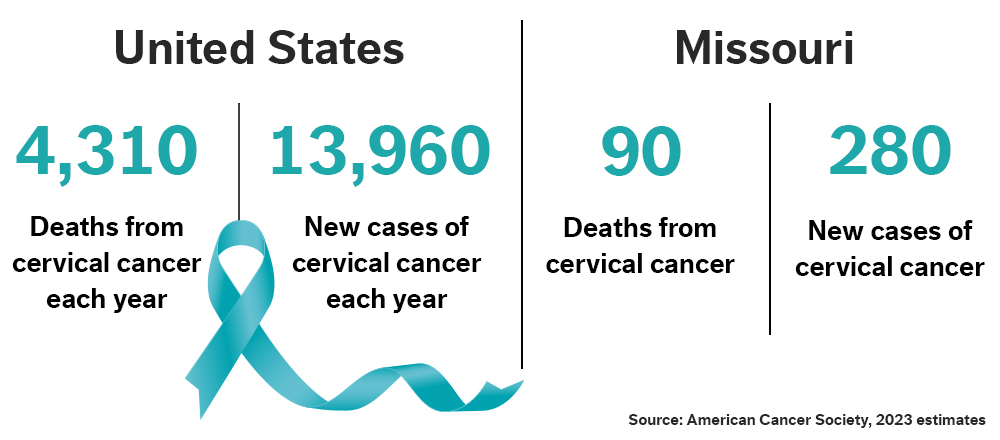Take 5 Minutes to Reduce Your Risk of Cervical Cancer
January 3, 2022By: Jodi Rawson
Categories: Cancer, Gynecology

Just 40 years ago, cervical cancer was the leading cause of cancer death in women. Thanks to increased use of the Pap smear, cases of cervical cancer have dropped dramatically.

Dawn Heizman, MD, with Meritas Health Pavilion For Women
While this is fantastic news, there’s still work to be done. Each year, more than 13,000 women are diagnosed with cervical cancer. That’s 13,000 women too many, considering two tests have proven their worth in detecting precancerous cells in the cervix.
- A Pap smear checks cervical cells for any abnormalities.
- The human papillomavirus test looks for the virus that puts you at risk for cervical cancer. HPV is the cause of almost all cervical cancers.
The beautiful thing is a cervical cancer screening takes about 5 minutes. We can all endure 5 minutes of uncomfortable awkwardness for a lifesaving test, right?
Dawn Heizman, MD, an OB-GYN with Meritas Health Pavilion for Women, and her colleagues follow these cervical cancer screening guidelines:
Screening Guidelines by Age
Under 21
No screening needed. However …
“Anyone under 21 who is sexually active should visit their gynecologist yearly to get screened for sexually transmitted infections and to make sure there are no problems related to contraception and/or pelvic pain.” – Dr. Heizman
21-29
Have a Pap smear every three years (if tests results remain normal).
“That doesn’t mean you only see your gynecologist every three years. We can help with everything from family planning to menopause.” – Dr. Heizman
30-65
Get co-tested (HPV screening plus a Pap smear) every five years (recommended).
“It’s possible to carry the HPV virus but not have cellular changes, which means a Pap smear alone doesn’t pick up the risk factor. That’s why we recommend co-testing every five years for women 30-65.” – Dr. Heizman.
65+
There’s no need to continue with screening if you’ve always had normal Pap smear results.
If you’ve had a hysterectomy
No screening needed, unless your hysterectomy was for reasons related to your cervix.
If you had the full series of HPV vaccines
Follow age-specific recommendations.



